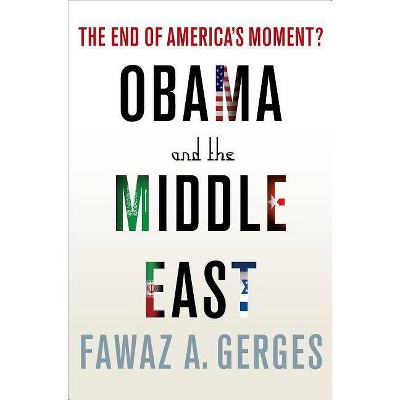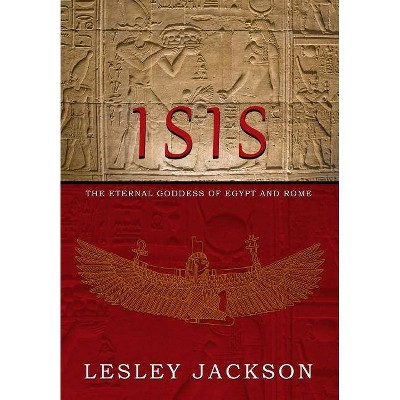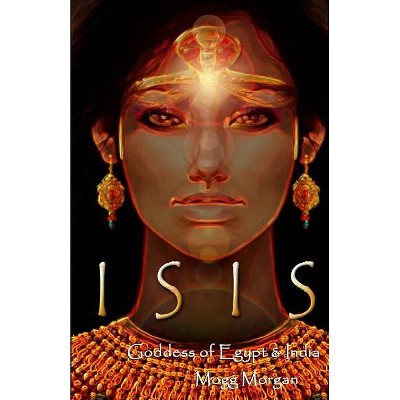ISIS - by Fawaz A Gerges (Paperback)

Similar Products
Products of same category from the store
AllProduct info
<p/><br></br><p><b> About the Book </b></p></br></br>The Islamic State has stunned the world with its savagery, destructiveness, and military and recruiting successes. What explains the rise of ISIS and what does it portend for the future of the Middle East? In this book, one of the world's leading authorities on political Islam and jihadism sheds new light on these questions as he provides a unique history of the rise and growth of ISIS. Moving beyond journalistic accounts, Fawaz Gerges provides an account of the deeper conditions that fuel ISIS. The book describes how ISIS emerged in the chaos of Iraq following the 2003 U.S. invasion, how the group was strengthened by the suppression of the Arab Spring and by the war in Syria, and how ISIS seized leadership of the jihadist movement from Al Qaeda. Part of a militant Sunni revival, ISIS claims its goals are to resurrect a caliphate and rid "Islamic lands" of all Shia and other minorities. In contrast to Al Qaeda, ISIS initially focused on the "near enemy"--Shia, the Iraqi and Syrian regimes, and secular, pro-Western states in the Middle East. But in a tactical shift ISIS has now taken responsibility for spectacular attacks in Europe and other places beyond the Middle East, making it clear that the group is increasingly interested in targeting the "far enemy" as well. Ultimately, the book shows how decades of dictatorship, poverty, and rising sectarianism in the Middle East, exacerbated by foreign intervention, led to the rise of ISIS -- and why addressing those problems is the only way to ensure its end.<p/><br></br><p><b> Book Synopsis </b></p></br></br><p><b>An authoritative introduction to ISIS, from a leading authority on jihadism</b> <p/>The Islamic State has stunned the world with its savagery, destructiveness, and military and recruiting successes. What explains the rise of ISIS and what does it portend for the future of the Middle East? In this book, one of the world's leading authorities on political Islam and jihadism sheds new light on these questions as he provides a unique history of the rise and growth of ISIS. Moving beyond journalistic accounts, Fawaz Gerges provides a clear and compelling account of the deeper conditions that fuel ISIS. <p/>The book describes how ISIS emerged in the chaos of Iraq following the 2003 U.S. invasion, how the group was strengthened by the suppression of the Arab Spring and by the war in Syria, and how ISIS seized leadership of the jihadist movement from Al Qaeda. Part of a militant Sunni revival, ISIS claims its goals are to resurrect a caliphate and rid Islamic lands of all Shia and other minorities. In contrast to Al Qaeda, ISIS initially focused on the near enemy--Shia, the Iraqi and Syrian regimes, and secular, pro-Western states in the Middle East. But in a tactical shift ISIS has now taken responsibility for spectacular attacks in Europe and other places beyond the Middle East, making it clear that the group is increasingly interested in targeting the far enemy as well. Ultimately, the book shows how decades of dictatorship, poverty, and rising sectarianism in the Middle East, exacerbated by foreign intervention, led to the rise of ISIS--and why addressing those problems is the only way to ensure its end. <p/>An authoritative introduction to arguably the most important conflict in the world today, this is an essential book for anyone seeking a deeper understanding of the social turmoil and political violence ravaging the Arab-Islamic world.</p><p/><br></br><p><b> From the Back Cover </b></p></br></br><p>"Not just timely but unlikely ever to be bettered, this is an indispensable guide to the evolution of the Arab world's leading terrorist organization by a global expert. Fawaz Gerges's book is judicious, well argued, and based on a close personal acquaintance with conditions in Iraq and Syria. It is unrivaled in its ability to unravel the ideological and political power struggles among ISIS leaders. And it is an often shocking indictment of Western missteps in dealing with the organization's growing capacity to harm foreign interests."<b>--Roger Owen, Harvard University and author of <i>The Rise and Fall of Arab Presidents for Life</i></b></p><p>"Fawaz Gerges, long one of the most perceptive writers about the Middle East, has written a lucid and erudite account of the rise of ISIS that will be read with great profit by both specialists and the general public."<b>--Peter Bergen, author of <i>United States of Jihad</i>, <i>Manhunt</i>, and <i>The Longest War</i></b></p><p>"In the flood of recent publications about ISIS, Gerges provides a welcome island of thoroughly researched analysis by a major authority on extremist Muslim movements. Both general readers and specialists will benefit from Gerges's balanced and well-informed understanding of this important and dangerous movement."<b>--John Voll, professor emeritus, Georgetown University</b></p><p>"In this original and empirically rich study, Fawaz Gerges persuasively analyzes the rise and power of ISIS. Building on his profound knowledge of salafi and jihadi movements, he locates ISIS squarely in its context, dissecting the ideas and political factors that have made it so surprisingly formidable in Iraq and Syria, as well as disturbingly influential elsewhere."<b>--Charles Tripp, SOAS, University of London</b></p><p>"Fawaz Gerges is the right scholar to bring the history of ISIS past its journalistic first draft. This should be a valuable source for policymakers, specialists, and the public alike."<b>--Noah Feldman, Harvard Law School</b></p><p>"Fawaz Gerges is a first-class expert on contemporary Jihadist movements. This book should have a wide readership."<b>--Ian Lustick, University of Pennsylvania</b></p><p/><br></br><p><b> Review Quotes </b></p></br></br><br>[Gerges's] argument is all at once persuasive, deeply depressing, yet hopeful.<b>---Daniel Flitton, <i>Sydney Morning Herald</i></b><br><br>[Gerges's] book is one of the most coherent, comprehensive and persuasive histories of ISIS to date and deserves to be widely read.<b>---Richard Cockett, <i>Literary Review</i></b><br><br>[The book's] strength stems from the sheer breadth of the survey offered by Gerges.<b>---Shiraz Maher, <i>New Statesman</i></b><br><br>[Written] with energy and clarity, and out of uncommonly extensive knowledge.<b>---Robert Fulford, <i>National Post</i></b><br><br>A CNN Fareed Zakaria GPS Book of the Week, August 7, 2016<br><br>Gerges . . . does an admirable job of locating ISIS within broader contexts of both Middle East societal realities and of prevalent political ideas within the Arab world.<b>---Jonathan Spyer, <i>Middle East Quarterly</i></b><br><br>Gerges has made an important contribution to the burgeoning literature on ISIS.<b>---Michael Degerald, <i>Middle East Policy</i></b><br><br>Gerges is clear, and it is here that the book excels, that Isis cannot be explained in isolation but must be examined in the larger sociopolitical context in which it emerged. . . . <i>ISIS: A History</i> makes a welcome contribution to the debate, and will be of interest to both general readers and specialists.<b>---Christina Hellmich, <i>Times Higher Education</i></b><br><br>Honorable Mention for the 2017 PROSE Award in Government and Politics, Association of American Publishers<br><br>One of Choice's Outstanding Academic Titles for 2016<br><br>One of Kirkus Reviews Best Nonfiction Books of 2016 in Current Affairs<br><br>Perhaps the most informative, clearly expressed, sober book on the subject.<b>---William Armstrong, <i>Hurriyet Daily News</i></b><br><br>Shortlisted for the 2017 Arthur Ross Book Award, Council on Foreign Relations<br><br>Terrific.<b>---Michael Brull, <i>New Matilda</i></b><br><br>This is quite simply the definitive book on the group by a very smart, well-informed guide to the region, superbly researched, well-written and intelligent throughout. Everyone opining about ISIS should be required to read this book first.<b>---Fareed Zakaria, CNN Global Public Square, <i></i></b><br><br>This timely history gives a clear-sighted account of the ascent of the so-called Islamic State (IS)--one with far-reaching implications. The book's findings and conclusions have profound relevance. . . . Written and edited with pellucid clarity, <i>ISIS: A History</i> is an important book that will have broad appeal.<b>---Chris Harmer, <i>LSE Review of Books</i></b><br><br>Well-researched and lucidly argued.<b>---Malise Ruthven, <i>New York Review of Books</i></b><br><br>2017 Gold Medal Winner in Current Events (Political/Economic/Foreign Affairs), Independent Publisher Book Awards<br><br>A specific, timely, well-rendered exegesis of the unfolding global threat.-- "Kirkus"<br><br>The achievement of Fawaz Gerges. . . in his compelling, insightful book is to highlight the social and sectarian pressures that led so many Iraqi and Syrian Sunnis to turn to Isis as protectors.<b>---Michael Burleigh, <i>Times</i></b><br><br>This hugely important study is essential reading for anyone who wants to understand the powerful political, sectarian and religious forces currently convulsing the Arab Middle East.<b>---P. D. Smith, <i>The Guardian</i></b><br><br>This is a comprehensive account of how ISIS emerged in the Middle East, triggered by the US invasion of Iraq, Syria's civil war, the collapse of the Arab Spring, and sectarian Sunni-Shi'a struggles. Gerges systematically details the complex social and political dynamics leading to ISIS's prominence among the Salafi-jihadist family of rivals. . . . This authoritative, empirically rich study based on primary Arabic sources should be must reading for policy makers, strategists, scholars, journalists, students, and anyone seriously concerned about the human condition.-- "Choice"<br><p/><br></br><p><b> About the Author </b></p></br></br><b>Fawaz A. Gerges</b> is professor of international relations and Emirates Professor in Contemporary Middle East Studies at the London School of Economics and Political Science. His many books include <i>The New Middle East</i>, <i>Obama and the Middle East</i>, and <i>The Far Enemy</i>. His writing has appeared in the <i>New York Times</i>, the <i>Washington Post</i>, the <i>Guardian</i>, <i>Foreign Affairs</i>, and other publications.
Price History
Cheapest price in the interval: 15.69 on October 28, 2021
Most expensive price in the interval: 15.69 on December 17, 2021
Price Archive shows prices from various stores, lets you see history and find the cheapest. There is no actual sale on the website. For all support, inquiry and suggestion messages communication@pricearchive.us



















